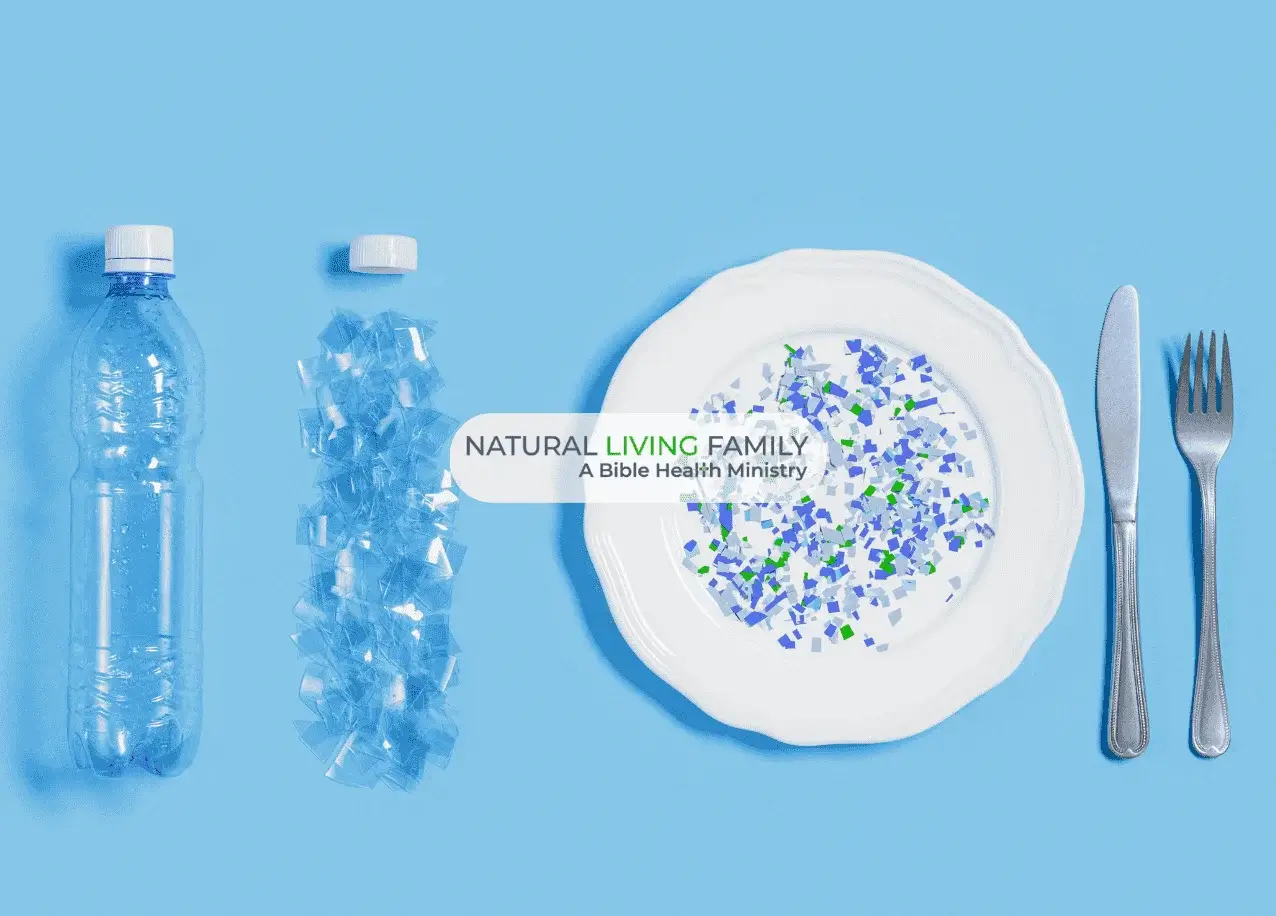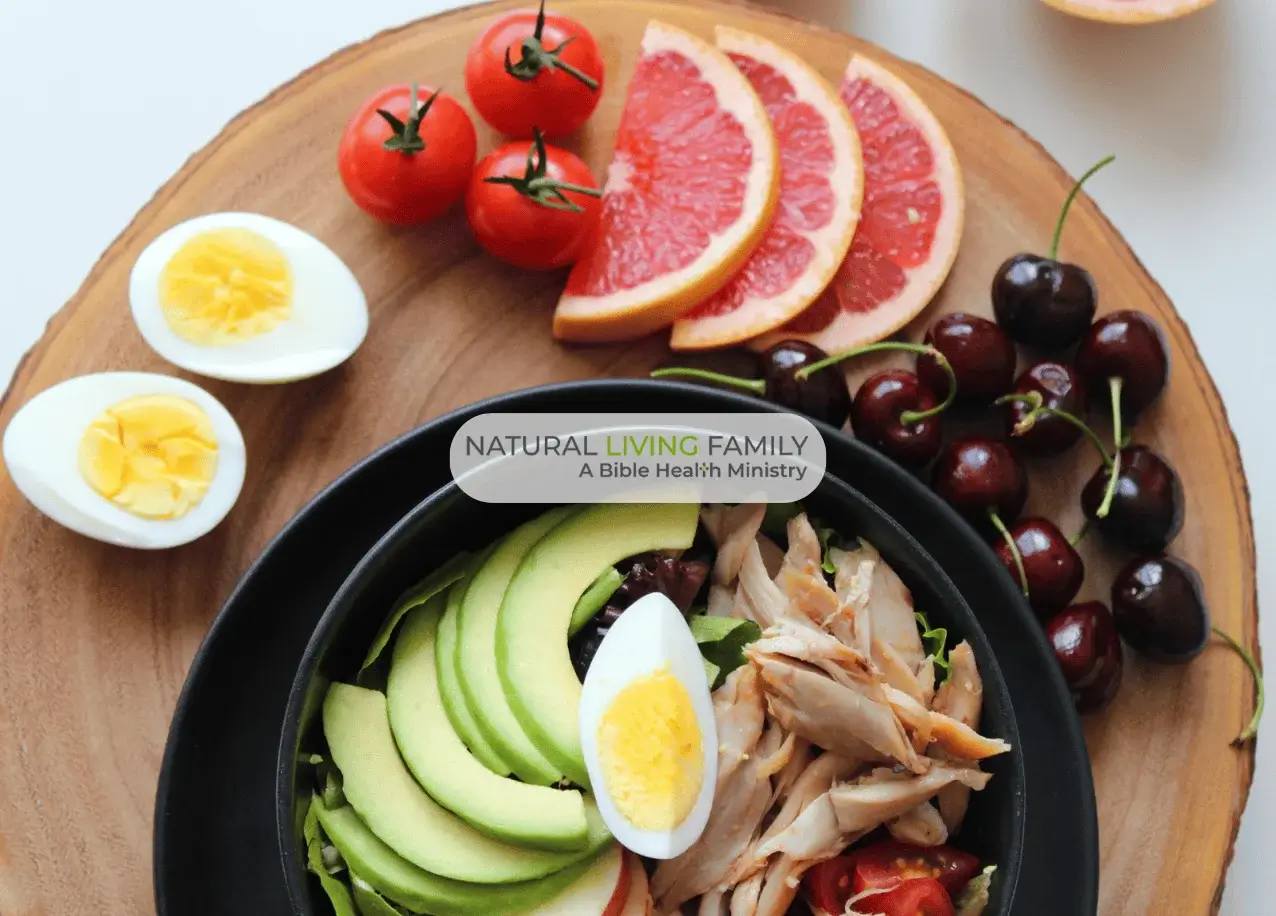The benefits of probiotic supplements have been suspected more than 2000 years ago when Hippocrates – the ancient Greek physician widely renowned as the father of modern medicine – identified the gut as being the focal point of health for the entire body.
“All disease begins in the gut,” Hippocrates said, which is fascinating because until very recently (just over a decade ago), science didn’t fully understand just how impactful the gut – specifically, the bacteria in your gut (collectively known as your “microbiome”) – was to our overall health.
If you’ve heard that there are many benefits of probiotic supplements and you’re interested in tapping into this healing power, read on…
Table of Contents
- About Your Microbiome
- History of Probiotics & Fermenting Foods
- Soil Based Organisms & Eating Dirt
- 5 Ways to Eating More Probiotics
- How to Find a Good Probiotic Supplement
- 10 Surprising Benefits of Probiotic Supplements
- Live Probiotic For Optimal Gut Health
- Bonus: How To Maximize the Benefits of Probiotic Supplements
About Your Microbiome
Launched in 2007, The Human Microbiome Project sought to fully identify the connection between the microorganisms (bacteria, viruses, etc) living in your body and their impact on health and disease.
Here’s what we now know: You are more bacteria than you are human. The number of bacteria found in your gut is roughly 10x more than the number of cells in your body. You have a total of about 1000 more bacterial genes than human genes.
You have good and bad bacteria. Bacteria often get a reputation for being a strictly nefarious substance. As it turns out, we have beneficial microbes too, and they’re crucial to the health of just about every bodily system.
These good bacteria are called probiotics. The term “probiotic” is derived from the Latin preposition “pro,” which means “for” and the Greek word “biotic” meaning “for life.” Many of the benefits of probiotic supplements come from helping us produce important nutrients that we do not have the human genes to make. These nutrients help break down food, teach our immune system how to recognize threats, and even create helpful compounds that fight off illness.
There’s an ever-growing number of studies that have demonstrated that changes in the composition and balance of your gut microbes correlate with numerous disease states. What that means is your ratio of good to bad gut bacteria will dictate your ability to be healthy and feel your best. What’s more, it’s possible to positively influence your microbiome by simply topping up your bacterial stocks with the proven benefits of probiotic supplements.
History of Probiotics & Fermenting Foods
Almost since the beginning of time, people have been fermenting and pickling food. In doing this, our ancestors were simply planning to preserve their foods as fermentation and pickling were the primary ways in which people kept their food around longer than just a few days.
But by pickling and preserving, they also unknowingly created many superfoods that are rich in some of the best nutrients known to man! These foods were jam-packed with probiotics (healthy microorganisms). Because of this, they regularly enjoyed long and healthy lives.
Those foods that are rich in probiotics are alive and full of helpful microorganisms and nutrition. But those wonderful days of longevity and health didn’t last forever. Soon came the Industrial Revolution. And the Industrial Revolution also brought the “Industrial Society.” During this time, food manufacturers were trying to figure out new ways to genetically modify foods to preserve them for even longer. Two great examples of what they came up with are white flour and white sugar. Naturally speaking, both white flour and white sugar are actually alive.
This means that they will naturally decompose over time (which is good), but it also means that they have a limited shelf life. In other words, they won’t last very long. The problem is that to make these foods, they have to be bleached by dangerous chemicals like chlorine. And in going through with these processes, they become essentially dead. In turn, this means that they have almost no nutritional value.
So here’s the point of all this: If your food won’t decompose (rot), it is dead, and this means it lacks healthy bacteria (probiotics). You may be surprised by this — as we live in a super clean culture — but humans were made to live in harmony with microorganisms. To see all the antibacterial soaps and antibiotics around, you’d think the opposite was true.
So, when you destroy good microorganisms, harmful ones can enter the picture. Here’s why…
An imbalance of your microflora can wreak havoc on your immune system because your immune system is almost entirely in your gut (80 percent is there). Your digestive system essentially houses billions and billions of good fungus and bacteria. Their biggest job is to find bad microorganisms and destroy them. Another one of their jobs is to help you metabolize your food. All of this keeps you healthy. This is why many people who are sick have issues in their digestive tract.
In fact, improper digestion and leaky gut have been linked to neurological issues like autism and many chronic diseases. In the end, the fact is that you need a proper probiotic balance within your gut so that you can fully absorb your food’s nutrients. This will help your organs and body systems be adequately fed with good nutrients, and it will make you overall more healthy.
Your body is designed to break down the food you eat into micro pieces. This allows your intestines to absorb the essential nutrients from your food. The rest is expelled as fecal matter. If you have the right balance of gut probiotics, your digestive tract will be able to absorb the nutrients your body needs or sort through what can be turned into waste. However, if you don’t have the right balance, you will have waste accumulation, backed-up lines, infrequent bowel movements, body odor, bad breath, and an overload of toxins.
Soil Based Organisms & Eating Dirt
So, what’s the traditional way to ensure that you maintain the right supply of bacteria in your GI tract?
Eating dirt!
No, I’m not kidding. To properly reestablish your gut ecosystem you need to regularly consume soil based organisms (SBO). These are the probiotics that you’ve never heard of before. Yet, people have eaten SBO’s every meal since the beginning of time.
Soil-based organisms benefits include probiotics (“good” bacteria) that normally live in dirt. They provide our GI tracts much-needed support for digestion, food assimilation and nutrient absorption. To date, approximately 30 different strains have been successfully isolated and are commonly put into the probiotic supplements that we see on the market today.
Some of the most beneficial SBOs include:
- Lactobacillus acidophilus
- Lactobacillus casei
- Lactobacillus rhamnosus
- Lactobacillus salivarius
- Lactobacillus plantarum
- Lactobacillus paracasei
- Lactobacillus brevis
- Bifidobacterium bifidum
- Bifidobacterium breve
- Bifidobacterium lactis
- Bifidobacterium longum
- Bacillus subtilis
- Saccharomyces boulardii
SBO Probiotics Benefits & Research
More than 800 research studies (5) referencing soil-based organisms exist in the scientific literature, which link SBO’s (Soil based organisms benefits) to successfully treating a wide variety of health conditions:
- Allergies
- Asthma
- Irritable bowel syndrome
- Ulcerative colitis
- Flatulence
- Nausea
- Indigestion
- Malabsorption
- Nutrient deficiency
- Autoimmune disease
- Inflammatory disease
- Bacterial, fungal, and viral infections
- And the list goes on and on…
5 Ways Eating More Probiotics
Here are a few of my favorite probiotic-rich foods that you should try!
1. Kefir
When researching probiotic-rich foods, you’ll find foods like kefir top the list. Made of a special combination of yeast (kefir grains), bacteria, and milk, the name comes from the word “keif,” which means “good feeling” in Turkish. It was 3,000 years ago that kefir was first described in Russia in the Northern Caucasus Mountains.
Some studies also say that kefir can be helpful for those who are lactose intolerant. However, coconut milk from a health food store might be just as good of a dairy milk substitute.
2. Kimchi and Sauerkraut
Kimchi comes from Korea, and sauerkraut comes from Germany. Kimchi is bok choy, cabbage, and other veggies that are fermented, and sauerkraut is only fermented cabbage. Both of these foods are rich in enzymes digestion and probiotics. They also support good bacteria growth because of their high amount of sour-tasting organic acids.
3. Kombucha
Kombucha is a blend of cane sugar and black tea that is carbonated. It is rich in probiotics, enzymes, and B vitamins. The Journal of Medicinal Food says that kombucha “harmonizes and balances metabolism in general and abolishes or limits fat accumulation.” It’s been popular in the Far East for over 2,000 years. Who knew this trendy healthy drink was loaded with probiotics?
4. Natto
This is a dish of fermented soybeans that is popular in Japan. It contains a strong probiotic called Bacillus subtilis. This has been known to enhance your body’s digestion of vitamin K2, improve your immune system, and support heart health. It also contains nattokinase, an enzyme with anti-inflammatory powers that can also help cancer.
5. Apple Cider Vinegar (ACV)
An honorable mention, technically not a probiotic-rich food, apple cider vinegar is great metabolism booster. It’s also been known to control diabetes, blood pressure, and cholesterol. To start drinking this, mix one cup of ACV with organic raw honey and a squeezed fresh lemon. You can mix it with another fat burner, coconut oil, as well. It makes a great vinaigrette.
How to Find a Good Probiotic Supplement
Without probiotics, your body’s complex system of digestive organs would be unable to properly digest food or absorb nutrients, vitamins and minerals. Probiotics also inhibit harmful microbes and drive a strong immune system.
But there’s no shortage of probiotic products to choose from… To that, there’s no shortage of marketing hype and misinformation in the gut health industry. Stroll down your local supplement aisle and you’ll be confronted with the following product options:
- Refrigerated vs room temperature
- 50 billion cells vs 4 billion cells
- Lactobacillus vs Bacillus strains
- And so on…
Fortunately, when it comes to probiotic supplement effectiveness, there’s ONE easy way to cut to the chase:
A probiotic is ONLY a “true probiotic” if it arrives in the intestines alive.
Why? Because if beneficial bacteria can’t survive the trip from your mouth to your gut, arriving fully intact and alive, then they can’t provide any benefit. PRO TIP: This is why probiotics that have to be refrigerated aren’t true probiotics. If a strain can’t survive at room temperature, how can it possibly survive past your stomach acid.
A live, active probiotic is your key to balanced gut health and feeling your absolute best! And, you may be surprised to discover that the benefits of a strong and supported gut go way past digestive and immune health…
10 Surprising Benefits of Probiotic Supplements
Probiotics clean your colon, make sure it doesn’t get backed up, and free it from obstructions. Your metabolism can almost shut down if you get “clogged pipes.” This is because your body will be trying to target and expel the waste instead of using its energy to break down calories. Those who don’t have enough probiotics often gain weight & have chronic gut issues. Here are the 10 most evidence-based benefits of consuming probiotic supplements.
1. Probiotics boost your mood
Serotonin, sometimes referred to as “the happy chemical,” is a key hormone that stabilizes our mood and encourages feelings of well-being. This hormone impacts your entire body by enabling communication between your brain cells and the rest of your body.
We now know that as much as 95% of your serotonin is produced in the gut, so it’s fair to say that good gut health is truly your fastest path to feeling your best (and brightest!)
2. Probiotics promote restorative sleep
If you’ve been tossing and turning, waking up grumpy, and feeling less than refreshed in the morning, the answer could lie in your gut.
In order to effectively transition through all 5 stages of sleep, your body needs the perfect amount of specific hormones and neurotransmitters (like serotonin). And, as we just learned, some of the most important neurotransmitters are produced and/or controlled by the beneficial bacteria – probiotics – in your gut.
3. Probiotics are great for your love life
Fun fact: In both animals and humans, serotonin is found in the genitals. Seriously!
In the central nervous system, serotonin is primarily a neurotransmitter, but in other parts of your system (specifically the genitals), serotonin promotes vasodilation (the widening of blood vessels.)
And blood flow is crucial for sensual arousal and intimacy.
4. Probiotics support strong athletic performance
Two major concerns for athletes in training are 1) recovery from workouts and 2) staying healthy. Why? Because slow recovery hinders progress and getting sick interrupts training AND can affect performance.
A study released in 2016 demonstrated that high-intensity training increases inflammation. This systemic inflammation can compromise the gut barrier and allow toxins to “leak” into the bloodstream (a condition known as “leaky gut.”)
By supporting strong gut health, you’re helping drive the strength of your gut barrier which also promotes a healthy inflammatory response (and therefore faster recovery times.)
5. Probiotics help you avoid “Traveler’s Diarrhea”
When traveling, you might not want to tempt fate by drinking the local water… But, your most effective protection will come from having a robust gut microbiome (preferably before ever getting on that airplane.)
Best way to do that? Look to bacterial strains that have been proven to colonize the gut and, once there, neutralize unwanted pathogens in the intestinal environment.
6. Probiotics drive optimal urinary health
Urinary issues (like UTIs) are commonly caused by bad bacteria like E. Coli that live in the gut and manage to find their way into the urinary system.
If your natural bacterial balance gets disrupted as a result of stress, antibiotics, or poor food choices, bad microbes are able to gain a stronger foothold and run rampant.
However, when your beneficial bacteria outnumber the bad guys, pathogens are less likely to grow. This positively impacts your entire body, including your urinary system.
7. Probiotics encourage beautiful skin
Your skin is your largest organ, so naturally, any signs of a bodily imbalance will show up on your skin first.
When you have ideal populations of beneficial bacteria in your body, you’re better able to promote a healthy inflammatory response and support the immune system’s ability to detox.
This in turn helps your skin to detox, creating the conditions for a blemish-free, radiant glow.
8. Probiotics boost nutrient absorption
If health is important to you, it’s likely you’ve already started making smart food choices at the supermarket.
But even if you’re choosing the most nutrient-dense foods, if your gut can’t properly absorb nutrients, you can’t use them in your body.
A proven probiotic can support a thriving population of good bacteria in your gut, which has been shown to help your system absorb nutrients effectively.
9. Probiotics are a boon to cardiovascular health
When allergies or a nasty chest cold make it hard to breathe freely, a popular option is to turn to decongestants, vapor rubs, and inhalers.
Here’s another option for you to consider: Support your gut!
The latest research confirms that a direct connection exists between your gut microbiome and your lungs. That means the health of your gut bacteria can play a big part in your respiratory health.
10. Probiotics = Easier weight management
Weight gain isn’t just a matter of willpower – It’s also driven by the bad bacteria in your gut
Pathogenic bacteria can:
- “Hijack” your food preferences so you end up choosing foods you know are bad for you
- Turn off the “I’m full” response so you continue to eat even when you aren’t hungry
- Manipulate your emotions so the unhealthy treats give you a momentary mood boost
This is why supporting your beneficial bacteria is so important… For strong health and ideal body composition!
Live Probiotic For Optimal Gut Health
Though the many benefits of probiotic supplements have long been touted as our best gut-optimizing partners, many people find it difficult to find a probiotic that actually works.
Here’s why:
According to research, the body’s naturally harsh stomach acid – which is necessary for digesting all types of foods – kills off 99.99% of the probiotic strains available. That means most probiotic products die long before their active strains get to your intestines.
So be sure that the probiotics you purchase are LIVE!
Bonus: How To Maximize the Benefits of Probiotic Supplements
Now that you understand the incredible and exhaustive benefits of probiotic supplements provide, here’s a pro tip for getting the most out of whatever supplement brand you choose. In the same way that you require fuel to work hard and feel your best, so too do the beneficial bacteria in your probiotic.
While enjoying the many benefits of probiotic supplements, you’ll be feeding the good microbes every time you eat something healthy. But to really supercharge the strength of your strains, you’ll want to pair your probiotic supplement with a proven PREbiotic.
PREbiotics are uniquely designed fibers that act like a fertilizer for your probiotic garden, helping your newly planted, good bacteria thrive!
Probiotics are best taken with PREbiotics so keep that in mind next time you purchase a bottle!
- Kadooka Y, et al. Regulation of abdominal adiposity by probiotics (Lactobacillus gasseri SBT2055) in adults with obese tendencies in a randomized controlled trial. Eur J Clin Nutr. 2010 Jun;64(6):636-43.
- Mallappa RH, et al. Management of metabolic syndrome through probiotic and prebiotic interventions. Indian J Endocrinol Metab. 2012 Jan;16(1):20-7.
- Million M, et al. Species and strain specificity of Lactobacillus probiotics effect on weight regulation. Microb Pathog. 2013 Feb;55:52-4.
- Vīna I, et al. Current Evidence on Physiological Activity of Kombucha Fermented Beverage and Expected Health Effects. J Med Food 2013; [Epub ahead of print].
- Langley AE. Thyroid, Bradycardic And Hypothermic Effects Of Perfluoro-N-Decanoic Acid In Rats. J Toxicol Environ Health 1985; 15(3-4): 485-91.
- https://commonfund.nih.gov/hmp
- https://www.genome.gov/about-nhgri/Division-of-Genome-Sciences
- https://www.hsph.harvard.edu/curtis-huttenhower/
- https://www.hsph.harvard.edu/
- https://pubmed.ncbi.nlm.nih.gov/?term=soil+based+organisms
- https://www.nytimes.com/topic/organization/tufts-university?inline=nyt-org
- https://www.tuftsmedicalcenter.org/PhysicianDirectory/Joel-Weinstock
- https://www.tuftsmedicalcenter.org/
- NIH Human Microbiome Project defines normal bacterial makeup of the body. Internet. Available at: http://www.nih.gov/news/health/jun2012/nhgri-13.htm
- Bittner AC, et al. Prescript-assist™ probiotic-prebiotic treatment for irritable bowel syndrome: A methodologically oriented, 2-week, randomized, placebo-controlled, double-blind clinical study. Clin Thera 2005; 27(6): 755-61.
- Brody JE. Babies Know: A Little Dirt Is Good for You. Internet. Available at: http://www.nytimes.com/2009/01/27/health/27brod.html?_r=0
- Baron M. A Patented Strain of Bacillus coagulans Increased Immune Response to Viral Challenge. Internet. Available at: https://www.researchgate.net/publication/24245284_Original_Research_A_Patented_Strain_of_Bacillus_coagulans_Increased_Immune_Response_to_Viral_Challenge.
- Tompkins TA, et al. A comprehensive review of of post-market clinical studies performed in adults with an asian probiotic formulation. Beneficial Microbes 2010. 1: 93-106.
- Zhong YT, et al. The bacteriostatic effect of Medilac-Vita on enteric pathogen and conditioned pathogen and their bacterial L form. Journal of Gannan Medical University 2006. 26: 487-488.
- Hosoi T, et al. Improved growth and viability of lactobacilli in the presence of Bacillus subtilis (natto), catalase, or subtilisin. Can J Microbiol. 2000 Oct;46(10):892-7.
- Kelesidis Tl, et al. Efficacy and safety of the probiotic Saccharomyces boulardii for the prevention and therapy of gastrointestinal disorders. Therap Adv Gastroenterol. 2012 Mar;5(2):111-25.
- Guzel-Seydim ZB, et al. Review: functional properties of kefir. Crit Rev Food Sci Nutr. 2011 Mar; 51(3):261-8.
- St-Onge MP, et al. Kefir consumption does not alter plasma lipid levels or cholesterol fractional synthesis rates relative to milk in hyperlipidemic men: a randomized controlled trial BMC Complement Altern Med. 2002;2:1. Epub 2002 Jan 22.
- de Moreno de Leblanc A, et al. Study of immune cells involved in the antitumor effect of kefir in a murine breast cancer model. J Dairy Sci 2007; 90(4):1920-8.
- Guzel-Seydim ZB, Kok-Tas T, Greene AK, Seydim AC. Review: functional properties of kefir. Crit Rev Food Sci Nutr 2011; 51(3):261-8.
- Hertzler SR, Clancy SM. Kefir improves lactose digestion and tolerance in adults with lactose maldigestion. J Am Diet Assoc 2003; 103(5):582-7.
- Lopitz-Otsoa F, et al. Kefir: a symbiotic yeasts-bacteria community with alleged healthy capabilities. Rev Iberoam Micol 2006; 23(2):67-74.
- Liu JR, et al. Hypocholesterolaemic effects of milk-kefir and soyamilk-kefir in cholesterol-fed hamsters. Br J Nutr 2006; 95(5):939-46.
- Vinderola CG, et al. Immunomodulating capacity of kefir. J Dairy Rez 2005; 72(2):195-202.
- Lopitz-Otsoa F, et al. Kefir: A symbiotic yeasts-bacteria community with alleged healthy capabilities. Rev Iberoam Micol 2006; 23:67-74.
- Society for General Microbiology. “How Probiotics Can Prevent Disease.” ScienceDaily. www.sciencedaily.com/releases/2009/04/090401200433.htm (accessed April 12, 2014).











